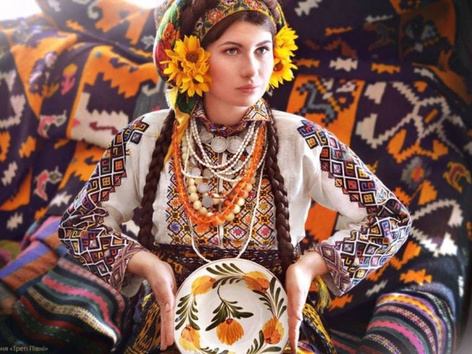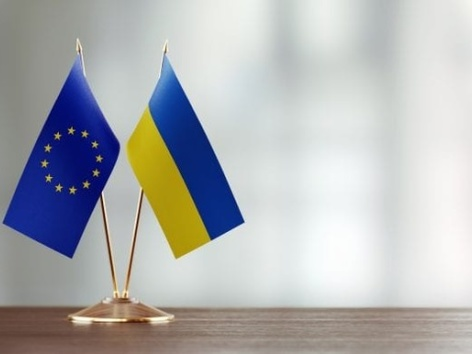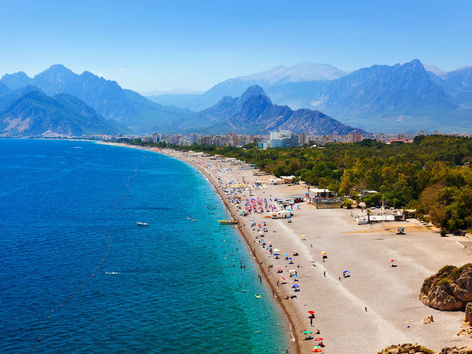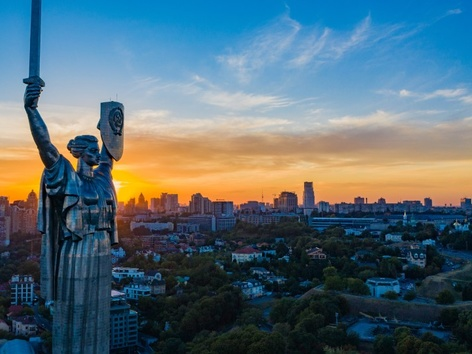Table of contents

Today Ukrainians celebrate Vyshyvanka Day. Vyshyvanka is a traditional Ukrainian clothing, mostly shirt, with originally a hand-made emroidery. Traditionally, Vyshyvanka Day falls annually on the third Thursday in May. Vyshyvanka Day has been celebrated since 2006, when a student of the Faculty of History, Political Science and International Relations of the Yuri Fedkovych National University of Chernivtsi invited her classmates and students to come all in embroidered shirts one day. Subsequently, the holiday rose to the national level, it started to be joined by the Ukrainian diaspora around the world, as well as supporters of Ukraine.
If we go back to history, there is no clear date of the embroidered shirt origin. It is said that the Ukrainian embroidered shirt is extremely ancient and embroidered clothes were created before the VI century. Ukrainians believed that the embroidered shirt is a talisman against all the evil that can happen in human life, and tried to encode happiness, destiny, life and will in the ornament. Almost every Ukrainian family has an embroidered shirt with different patterns on it. Each region of Ukraine has a specific pattern, ornaments, traditional colors, which embroider a shirt and are typical for this area.
Vyshyvanka Day is not tied to any state or religious holiday. The holiday does not include mandatory events, and anyone can join it. It is enough to simply wear an embroidered shirt or clothes with elements of Ukrainian embroidered shirt. The very idea of the holiday is to preserve Ukrainian values and promote them among young people and the general population. In the conditions of the war with Russia, this day is even more important for Ukrainians, because we can once again remind the whole world about the independent culture of the Ukrainian nation and the difference from Russia.
Lithuanian President Gitanas Nauseda with his wife in embroidered shirts.
Photo: the President's Twitter page @GitanasNauseda
It is on the third day of Thursday, May, that you can see many Ukrainians in embroidered shirts in government offices, schools, kindergartens, offices, or even just on the street in support of this holiday. On this day, it is customary to wear an embroidered shirt and go on a business as usual. Moreover, this year many embroidered shirts were worn by the military, even on the front line.
At a time when Ukrainians are proud of their national clothes and wear them with pleasure every day or on holidays, they are joined by public figures, world celebrities and politicians. Today, May 19, 2022, the President of Lithuania Gitanas Nauseda and his wife wore white embroidered shirts, namely white shirts with white embroidery, and once again supported Ukraine. The President of Lithuania stressed that in this way he once again wants to show his solidarity, and also assured that his country will stand by the Ukrainians until their final victory over Russia. European Parliament President Roberta Metsola is also celebrating Vyshyvanka Day. She noted that "The struggle of Ukrainians for freedom is also our struggle."
Президентка Європарламенту Роберта Мецола. Фото: сторінка @EP_President у Twitter
Today, Melinda Simmons, Ambassador Extraordinary and Plenipotentiary of the United Kingdom to Ukraine, celebrates Vyshyvanka Day with her. According to her, "Vyshyvanka Day has now become especially important against the background of Russian aggression against Ukrainian culture." The Embassies of the United States, Lithuania, Sweden, Germany, Israel in Ukraine and the President of the European Commission Ursula von der Leyen also congratulated Ukrainians on the Day of Embroidery. Interestingly, the EU Delegation to Ukraine launched a flash mob on Instagram, in which you can virtually try on an embroidered shirt. In support of the Ukrainian people, embroidered clothes were worn in Prague and Gdansk. Today in these cities various actions on the occasion of a holiday took place.
Recommended articles
2 min
Popular
3 min
Education
Admission to Ukrainian universities during the war: useful tips for international students in 2024
Despite the war and danger, foreign students continue to enroll in Ukrainian higher education institutions. This is not surprising, as the quality of Ukrainian education meets international requirements and standards. Learn more about the specifics of admission to Ukrainian universities for international students in 2024
12 May. 2024
More details2 min
Travel


